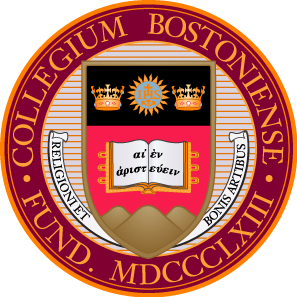
By
Administrators and faculty members heard a progress report last week on Boston College’s undergraduate core curriculum renewal, including the debut of interdisciplinary pilot courses this academic year and the tasks ahead for the committee charged with coordinating and managing the core.
The town hall-style forum, held Sept. 9 in Fulton Hall, featured a discussion with inaugural Associate Dean for the Core Julian Bourg that touched on faculty questions about issues such as assessment of the core and core substitution requests.
The event served as a formal introduction to Bourg, an associate professor of history, in his new role – he was appointed to a three-year term as associate dean last month. Bourg also serves on the University Core Renewal Committee (UCRC), created this past summer to succeed the University Core Development Committee in providing governance for the core.
“The core is about our students,” said Bourg in his overview. “We may disagree about what’s best for our students, and what should be in the core – and these debates are healthy. But in the end, the core is about our students. So it will require reasonable people of good will from across the campus to ensure our students’ core experience is a successful one.”
Also on hand at the forum was Morrissey College of Arts and Sciences Dean Gregory Kalscheur, SJ, who chaired the Core Foundations Task Force that produced the 2014 statement titled “The Vision Animating the Boston College Core Curriculum.” That document, along with the 2013 “Toward a Renewed Core” proposal, articulated the importance of intellectual engagement and interdisciplinary approaches, and the centrality of Jesuit principles, to the core.
“This is an exciting time for the core renewal,” said Fr. Kalscheur in his introduction, citing the new pilot courses – which all have “healthy enrollments,” he added – as an important outgrowth of the work done by many administrators, faculty and staff across the University.
“But these and other new courses to follow aren’t the only dimension of the core renewal process. It also will be important to foster innovation in existing core courses, so they more energetically follow the vision expressed in the core statement.”
Bourg described the two categories for the 15 new pilot courses, which are open to first-year students only. Three are designated Complex Problems: team-taught by two faculty from different disciplines and consisting of three lecture classes as well as weekly lab sections and evening reflection sessions. The other 12 are linked in six pairs through Enduring Questions, taught by faculty from different disciplines – who collaborate on readings and materials – and are taken by the same group of students, who meet for four evenings during the semester to reflect on and integrate the classes’ content.
The approximately 350 students enrolled in the pilot courses this year might constitute “a small footprint,” said Bourg, but a number of departments have reported significant increases in freshmen enrollments for core courses over last year, including Sociology (119 percent) and Earth and Environmental Sciences (59 percent). Yet this rise did not result, he said, in a drop in freshmen enrollment for established interdisciplinary programs like Cornerstone and Perspectives.
Bourg encouraged faculty to submit pilot course applications for the 2016-17 academic year by the Oct. 5 deadline. The UCRC will hold luncheons today and Sept. 23 that he said would enable faculty members to meet and brainstorm on potential interdisciplinary collaborations.
“One big challenge we face is that we tend not to know a lot of people in departments other than our own,” said Bourg. “The core provides the opportunity for us to seek one another out, and that is something we need to do. No discipline has a monopoly on knowledge. Liberal arts is at the center of all we do in the core, which is to model connections and integration between disciplines. It’s our job, not our students’ on their own, to make those connections.”
Bourg said the UCRC will serve as a resource and means for faculty participation in the core, outlining several areas the committee will focus on, such as evaluating proposals for new core classes and for changes to existing ones; tracking core courses and their status; processing student core substitution requests; and offering core pedagogical innovation grants to aid faculty in devising creative ways of teaching core classes.
Core assessment also will be a major task for the UCRC, especially with the University set to undergo reaccreditation in 2017 – although he added that some aspects of assessment, such as of pilot courses, will be for internal program development and distinct from the reaccreditation process.
Bourg said he and the UCRC are making every effort to ascertain, and fine-tune systems and procedures to meet, faculty members’ needs with respect to the core. But the committee also will take a big-picture approach to the core and its place at BC – something he said faulty members should do in dialogue with one another and with the Jesuit, Catholic mission of Boston College.
“Through the core, we are attending to the context of our students’ lives,” he said. “We should always each make time to reflect on our role as teacher and mentor, and how the core can enable us to serve that role.”
For information on the Boston College core curriculum, see www.bc.edu/core.



